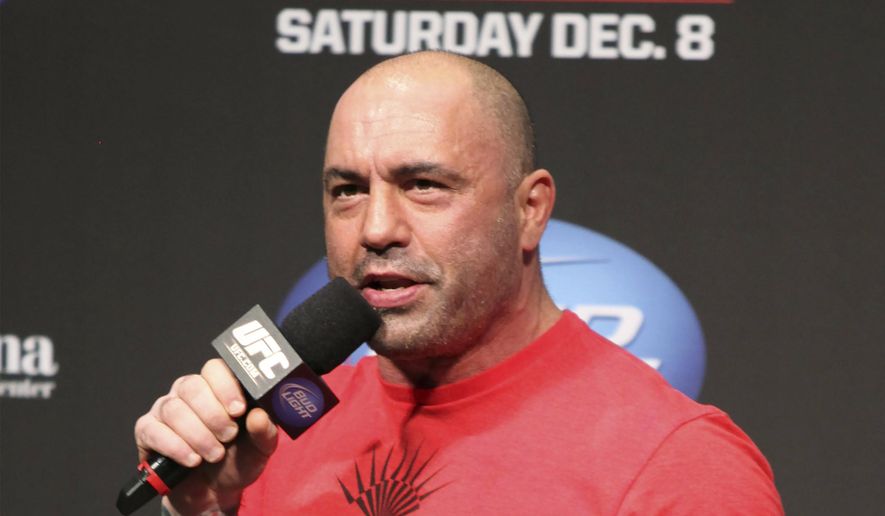Spotify said Sunday that it would stand by Joe Rogan despite the latest round of complaints from liberal activists about the popular podcaster, this time about his use of racial slurs.
Spotify CEO Daniel Ek said that while the streaming giant condemns Mr. Rogan’s past use of the n-word, for which he apologized late last week, “canceling voices” is not a proper response.
“While I strongly condemn what Joe has said and I agree with his decision to remove past episodes from our platform, I realize some will want more. And I want to make one point very clear – I do not believe that silencing Joe is the answer,” Mr. Ek said.
Mr. Rogan agreed to remove dozens of episodes of “The Joe Rogan Experience” from Spotify after Grammy-winning singer India Arie posted a video compilation of Mr. Rogan using the n-word in clips over a 12-year span and announced that she was removing her music from Spotify. Other artists have pulled their work, accusing Mr. Rogan of spreading misinformation on the coronavirus.
The podcaster said regarding the racial slur that he was always quoting other people. But he actually used the slur rather than saying “the n-word.” He acknowledged in Saturday’s apology that “it’s not my word to use.”
Mt. Ek’s statement, released Sunday night, said that Spotify “should have clear lines around content and take action when they are crossed, but canceling voices is a slippery slope.
“Looking at the issue more broadly, it’s critical thinking and open debate that powers real and necessary progress,” he said.
To that end, Mr. Ek pledged a massive amount into developing music by what he called “underrepresented” groups, saying that would be more consistent with the mission of an open streaming platform than cancel culture would be.
“If we believe in having an open platform as a core value of the company, then we must also believe in elevating all types of creators, including those from underrepresented communities and a diversity of backgrounds … So I am committing to an incremental investment of $100 million for the licensing, development, and marketing of music (artists and songwriters) and audio content from historically marginalized groups,” he said.
• Victor Morton can be reached at vmorton@washingtontimes.com.




Please read our comment policy before commenting.